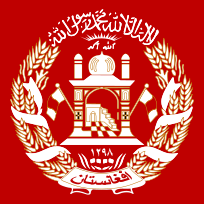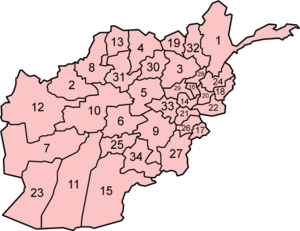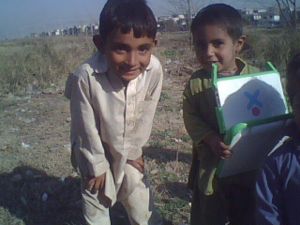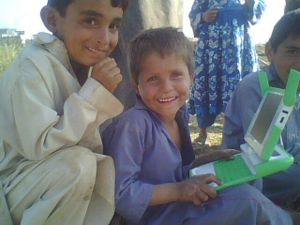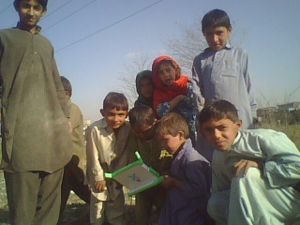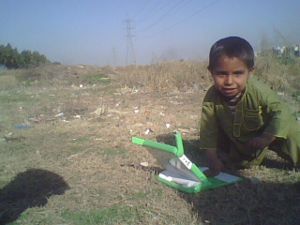Afghanistan
Template:For Template:Infobox Country
Afghanistan, officially the Islamic Republic of Afghanistan (Pashto: د افغانستان اسلامي جمهوریت, Persian: جمهوری اسلامی افغانستان), is a landlocked country that is located approximately in the center of Asia. It is variously designated as geographically located within Central Asia,<ref>The 2007 Middle East & Central Asia Politics, Economics,and Society Conference University of Utah</ref><ref> "Regional Economic Outlook: Middle East & Central Asia" May 2006, International Monetary Fund</ref> South Asia,<ref>CIA world factbook, Afghanistan - Geography (Location: Southern Asia)</ref><ref name="SouthAsia">University of California, [1], University of Pennsylvania, World Bank; US maps; [2] ; University of Washington Syracuse University</ref> and the Middle East.<ref>Middle East Network Information Center (MENIC), University of Texas at Austin</ref><ref> Afghanistan Profile, National Geographic (accessed 20 January 2006)</ref><ref> Afghanistan, Middle East Institute (accessed 20 January 2006)</ref> It has religious, ethno-linguistic, and geographic links with most of its neighboring states. It is bordered by Pakistan in the south and east,<ref name="India">Footnote: The Government of India also considers Afghanistan to be a bordering country. This is because it considers the entire state of Jammu and Kashmir to be a part of India including the portion bordering Afghanistan. A ceasefire sponsored by the United Nations in 1948 froze the positions of Indian and Pakistani held territory. As a consequence, the region bordering Afghanistan is in Pakistani-administered territory.</ref> Iran in the west, Turkmenistan, Uzbekistan and Tajikistan in the north, and China in the far northeast. Afghanistan also shares a small land border in the extreme northeast with the disputed Northern Areas of Jammu and Kashmir claimed by India but currently administered by Pakistan. The name Afghanistan means the "Land of Afghans."
Afghanistan is a culturally mixed nation, a crossroads between the East and the West, and has been an ancient focal point of trade and migration. It has an important geostrategical location, connecting South, Central and Southwest Asia. During its long history, the land has seen various invaders and conquerors, while on the other hand, local entities invaded the surrounding vast regions to form their own empires. Ahmad Shah Durrani created the Durrani Empire in 1747, with its capital at Kandahar.<ref name = "britannica-durrani">Ahmad Shah Durrani, Britannica Concise.</ref> Subsequently, the capital was shifted to Kabul and most of its territories ceded to former neighboring countries. In the late 19th century, the state of Afghanistan was created as a buffer state in "The Great Game" played between the British Indian Empire and Russian Empire.<ref>The Decline of the Pashtuns in Afghanistan, Anwar-ul-Haq Ahady, Asian Survey, Vol. 35, No. 7. (Jul., 1995), pp. 621-634.</ref> On August 19, 1919, following the third Anglo-Afghan war, the country regained full independence from the United Kingdom over its foreign affairs.
Since the late 1970s Afghanistan has suffered continuous and brutal civil war, which included foreign interventions in the form of the 1979 Soviet invasion and the recent 2001 US-led invasion that toppled the Taliban government. In late 2001 the United Nations Security Council authorized the creation of an International Security Assistance Force (ISAF). This force is composed of NATO troops that are involved in assisting the government of President Hamid Karzai in establishing the writ of law as well as rebuilding key infrastructures in the nation. In 2005, the United States and Afghanistan signed a strategic partnership agreement committing both nations to a long-term relationship. In the meantime, multi-billion US dollars have also been provided by the international community for the reconstruction of the country.
Etymology
- Main article: Origins of the name Afghan
The name Afghānistān translates to the "Land of Afghans". Its modern usage derives from the word Afghan.
Origin of the word "Afghan"
There are different theories about the origin of the word Afghan, its age, and its meaning. Some believe that "Afghan" is formed from "Apagân".<ref>Encyclopedia Britannica, Afghanistan History, Online Edition LINK</ref> The Pashtuns began using the term Afghan as a name for themselves from at least the Islamic period and onwards. According to W. K. Frazier Tyler, M. C. Gillet and several other scholars, "The word Afghan first appears in history in the Hudud-al-Alam in 982 AD." A Moroccan traveller, Ibn Battuta, visiting Kabul in 1333 writes: "We travelled on to Kabul, formerly a vast town, the site of which is now occupied by a village inhabited by a tribe of Persians called Afghans."<ref>The Story of Kabul, Mongols</ref>
In this regard the Encyclopædia Iranica states:<ref>"Afghan" (with ref. to "Afghanistan: iv. Ethnography") by Ch. M. Kieffer, Encyclopaedia Iranica Online Edition 2006.</ref>
It further explains:
Afghanistan, officially the Islamic Republic of Afghanistan (Pashto: د افغانستان اسلامي جمهوریت, Dari: جمهوری اسلامی افغانستان), is a landlocked country that is located approximately in the center of Asia. It is variously designated as geographically located within Central Asia,[3][4] South Asia,[5][6] and the Middle East.[7][8][9] It has religious, ethno-linguistic, and geographic links with most of its neighboring states. It is bordered by Pakistan in the south and east,[10] Iran in the west, Turkmenistan, Uzbekistan and Tajikistan in the north, and China in the far northeast. Afghanistan also shares a small land border in the extreme northeast with the disputed Northern Areas of Jammu and Kashmir claimed by India but currently administered by Pakistan. The name Afghanistan means the "Land of Afghans."
Afghanistan is a culturally mixed nation, a crossroads between the East and the West, and has been an ancient focal point of trade and migration. It has an important geostrategical location, connecting South, Central and Southwest Asia. During its long history, the land has seen various invaders and conquerors, while on the other hand, local entities invaded the surrounding vast regions to form their own empires. Ahmad Shah Durrani the great (Shah Ba Ba) created the Durrani Empire in 1747, with its capital at Kandahar.[11] Subsequently, the capital was shifted to Kabul and most of its territories ceded to former neighboring countries. In the late 19th century, the state of Afghanistan was created as a buffer state in "The Great Game" played between the British Indian Empire and Russian Empire.[12] On August 19, 1919, following the third Anglo-Afghan war, the country regained full independence from the United Kingdom over its foreign affairs.
Since the late 1970s Afghanistan has suffered continuous and brutal civil war, which included foreign interventions in the form of the 1979 Soviet invasion and the recent 2001 US-led invasion that toppled the Taliban government. In late 2001 the United Nations Security Council authorized the creation of an International Security Assistance Force (ISAF). This force is composed of NATO troops that are involved in assisting the government of President Hamid Karzai in establishing the writ of law as well as rebuilding key infrastructures in the nation. In 2005, the United States and Afghanistan signed a strategic partnership agreement committing both nations to a long-term relationship. In the meantime, multi-billion US dollars have also been provided by the international community for the reconstruction of the country.


